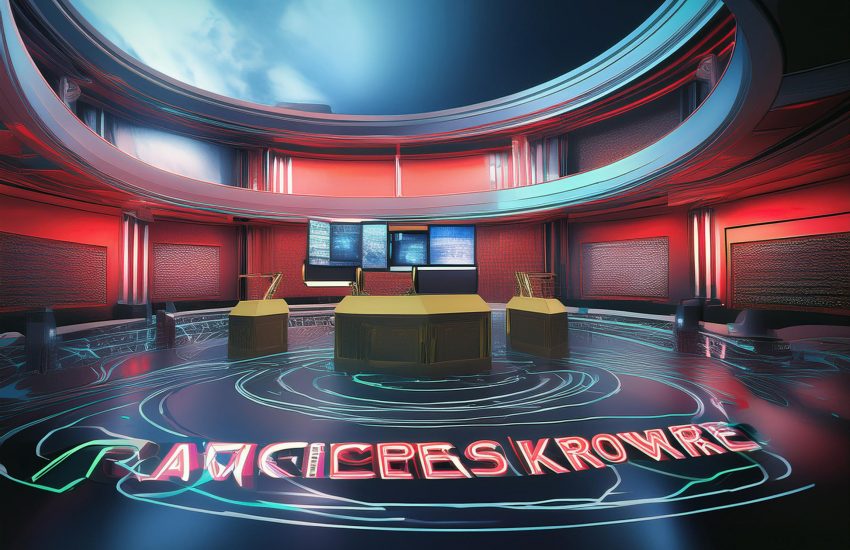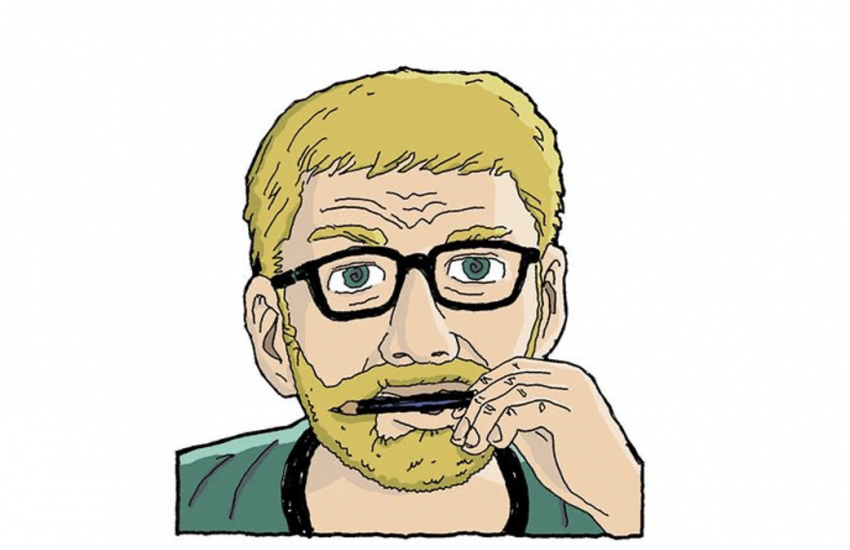How Vox’s Alvin Chang explains complex topics, from science to politics
Alvin Chang’s recent video for Vox, “How humans disrupted a cycle essential to all life,” reached 500,000 views within a few weeks of being published. It does a great job at succinctly explaining the carbon cycle in a fashion that can be appreciated by all.
Although Chang’s title at Vox is a reporter, much of his work is centered around explaining nuanced information to his audience, rather than covering current events. Chang embodies the protean expert journalist, able to deftly switch from explaining stories about politics to demystifying stories on science. Storybench sat down with Chang to talk about his role at Vox.
What’s your role in the projects you work on? How much of the finished project do you do yourself?
I recently transferred from the politics team to the video team. So my background is in the reporting and the research and the writing. And if you look at a lot of the work from before the video stuff, it was me doing everything from beginning to end. So it involves doing the reporting, the research, the writing, the graphics, whatever programming development and data analysis needs to be done. Just everything from beginning to end. With this project, and with especially a lot of videos that require a lot more time, like post production time, I did everything up until making the video look pretty. I have an animator who helped me essentially make everything look nice and presentable.
Is there space for both science explanation and traditional science reporting in the field?
I think there’s space for both. There’s space for obviously whatever the latest controversy is or whatever the latest news is. I think what’s really special about the work I get to do is I get to take a step back from that and kind of asses what people need to know. And people as in people who are not experts in whatever we’re covering. So if you haven’t really been covering or thinking about climate change in a meaningful way, then you don’t really know about the carbon cycle. In fact, it’s something that I wasn’t super familiar with until I started reading some of the work my colleagues did and but obviously it’s one of the very first things that you learn about when you start learning about climate change.
So it’s a very basic thing I’m assuming that in 10 years science classes will cover the carbon cycle inside out all the time. But it’s something that is that really basic knowledge that helps you frame the way that you consume all of this other news, this other information. And I think that that’s, you know, I’m lucky enough to be able to do that and I think it’s that journalists often don’t think is their job. We often think our job is not to do the basic teaching. But that’s something that I’ve been pushing folks to do more of. Even if you’re covering the latest thing, go back and do the remedial teaching of something that you think is basic. Because I think that really helps you understand, you know, helps people understand what they’re actually reading, versus just the top level controversy.
How does money factor into this? Do people want coverage or explanation?
The thing about the money is… people shockingly want to learn. But the difference is they want to learn and they’re willing to consume that content then stuff does extremely well. I think this video has like half a million views, this stuff does really well. It’s just a matter of whether you’re willing to spend the time to teach something to someone in a way that’s efficient and smart. It’s kind of the same difference as going to class with a bad professor who’s just going to ramble on about something and you’re like it’s not worth my time. Versus a professor who’s going to- who’s thought a lot about that and it’s just engaging and you learn a lot about it and you feel like you see something in a different light. Like that’s a really good feeling, but it’s really hard for us to sit down and say ‘OK, I want to teach some a piece of information in an engaging way.’ That’s something that’s just hard to do. So we fail a lot of times, some of the thing we do are just not useful and engaging. But that’s the hope, that this information can be engaging and we can really help people think about and learn material in an efficient and accurate way.
Do journalists have a monumental task in front of them in order to understand the science they want to explain?
Getting the larger context is very hard. It takes time. But it’s one of those things that helps you contextualize. Every other time I go and write about climate change or make something about climate change, I’ll have this framework for understanding it. But it kind of the first thing that- you know if you’re covering let’s say- I cover education a lot so before I started to write about say school segregation I needed to get the entire history of school segregation and kind of the legal framework and kind of have that basic knowledge down. Because if I don’t have a proper way of thinking about it, then I’m just going to think that the history of this thing started last month. You know it’s not like climate change started yesterday or last year or a lifetime thing, like climate change is a thing that you can only understand through the context of the entire history of the earth.
So understanding that is definitely hard, it’s definitely frustrating but it’s also something that if you are taking on the role of a journalist you need to do. You just need to do that, because it means that you don’t truly understand or aren’t making a good faith effort in the thing you’re understanding and you’re treating these like stories as opposed to accurate depictions of- like this isn’t entertainment. As entertaining as it can be, this isn’t about giving someone like this little endorphin boost of ‘ooo new information.’ It’s about giving people a larger context to actually consume information in a productive way.
Do pieces explaining science need to have a visual component, like Vox’s do?
I don’t think you have to use visuals necessarily. I think there are points where visuals are- like if you’re giving someone directions to a Starbucks down the street, it’s a lot easier to take out a map and draw it out and say you take a left turn here and a right turn here, that’s how get there. So there are definite advantages, there are definite use cases where- it’s not like I’m spending tons of time making it look perfect: I think there’s a visual that kind of explains this and draw something and call it a day. If we’re actually serious about our role as getting information across to readers in an efficient and smart way then inevitably we’re going to want to turn to visuals at some point. Inevitably, we’re going to want to make a chart or a diagram or like show a picture or whatever that is. But I think right now, we’re doing it it’s really easy – and I’m getting to that point in my career where I don’t – do I really want to learn this new thing?
Like I already know how to do all these other things so why should I be stressed about, why should I be a beginner at something. And I understand that instinct and you just have to try to fight against that and say. It can’t always be like, ‘Oh the young people are going to do the new thing, and the old people are going to do the old thing.’ That’s just silly. I think there’s an instinct to want to stick to what we know, but also we all inherently know that there are certain ways to explain a certain thing and I just think it’s important to keep that in mind and within reasonable bounds try to put yourself out there and if it takes a stick drawing, it might be embarrassing, but you can’t be good at something if you can’t be bad at something.
- How Vox’s Alvin Chang explains complex topics, from science to politics - March 12, 2019
- How we built an immersive underground history of our university - December 19, 2018





